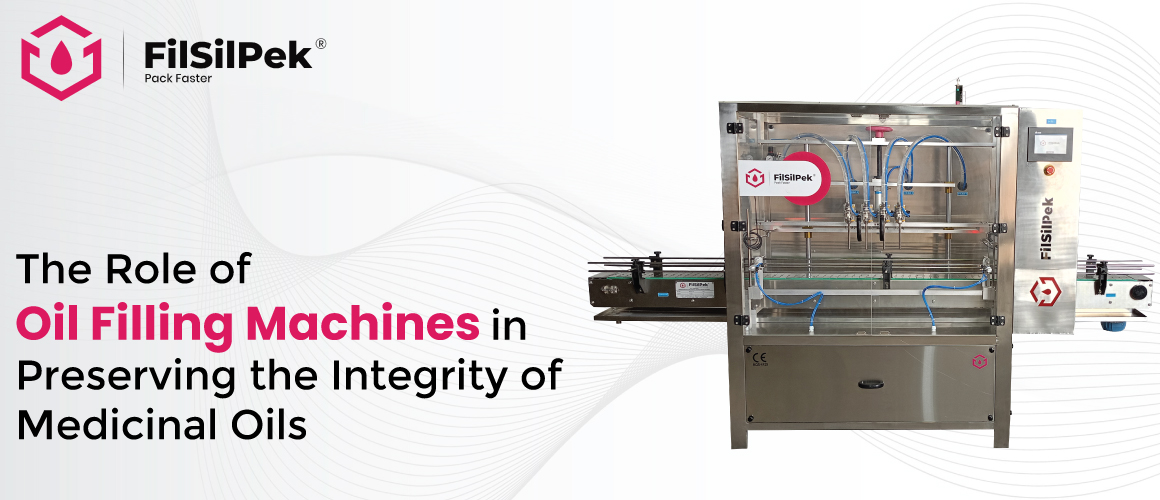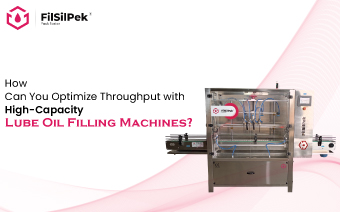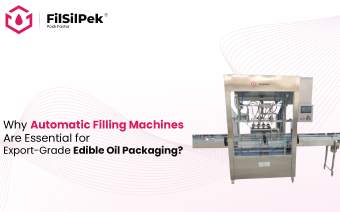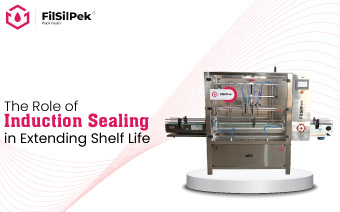The Role of Oil Filling Machines in Preserving the Integrity of Medicinal Oils
Medicinal oils play a significant role in healthcare, offering therapeutic benefits ranging from pain relief to immune system support. These oils are often derived from natural sources and require careful handling to maintain their potency and effectiveness. One of the key aspects of ensuring their quality is the filling and packaging process.
Oil filling machines are essential in preserving the integrity of medicinal oils by preventing contamination, ensuring precise filling, and maintaining product stability. This article explores their role in safeguarding these valuable formulations.
Why Accuracy Matters in Medicinal Oil Filling?
Medicinal oils require exact measurements to ensure consistent potency and therapeutic effectiveness. Even minor variations in quantity can impact dosage accuracy, potentially reducing the oil’s intended benefits. Automated filling systems eliminate these inconsistencies, maintaining uniformity across every batch.
Regulatory standards demand strict adherence to volume specifications in pharmaceutical and nutraceutical products. Advanced oil filling machines use digital controls and high-speed sensors to dispense the correct amount, preventing issues like underfilling, which affects efficacy, or overfilling, which leads to wastage and non-compliance.
- Maintains consistent dosage for reliable therapeutic effects
- Prevents regulatory non-compliance due to incorrect fill levels
- Minimizes product loss by reducing overfills and spillage
- Enhances production efficiency with automated volume control
- Reduces human error in manual dispensing processes
- Ensures uniformity across multiple production batches
- Supports consumer trust by delivering consistent product quality
- Lowers operational costs by optimizing material usage
Core Problems and Precautions in Medicinal Oil Filling
Filling medicinal oils comes with several challenges that can affect product quality, stability, and regulatory compliance. Issues like contamination, oxidation, and inconsistent filling can compromise the oil’s effectiveness, making it essential to adopt strict precautions during the filling process.
Key Problems in Medicinal Oil Filling
- Contamination Risks – Exposure to air, moisture, or microbes can degrade medicinal oils, affecting their purity and therapeutic properties.
- Oxidation and Spoilage – Contact with oxygen can cause oils to deteriorate, reducing their shelf life and effectiveness.
- Inconsistent Fill Levels – Variations in volume can lead to dosage discrepancies, affecting consumer trust and regulatory compliance.
- Viscosity Challenges – Thick oils require specialized filling mechanisms to ensure smooth flow and prevent clogging.
- Leakage and Spillage – Poor sealing or inaccurate dispensing can result in product loss and packaging issues.
- Cross-Contamination – Residual oil from previous batches can mix with new formulations, impacting purity and quality.
- Packaging Material Compatibility – Certain oils can react with plastic or metal containers, leading to degradation over time.
Essential Precautions for Maintaining Quality
- Use hygienic filling systems with stainless steel components to prevent contamination.
- Implement nitrogen flushing to minimize oxygen exposure and extend shelf life.
- Calibrate machines regularly to ensure accurate volume control and consistency.
- Choose appropriate filling technology based on the oil’s viscosity and packaging type.
- Employ clean-in-place (CIP) systems for thorough cleaning between batches.
- Use tamper-proof and air-tight sealing to prevent leaks and maintain freshness.
- Test packaging compatibility to avoid chemical reactions that affect oil stability.
Addressing these challenges with the right technology and strict quality controls ensures medicinal oils retain their effectiveness, meeting both industry standards and consumer expectations.
How Automatic Oil Filling Machines Help in Medicinal Oil Filling?
Medicinal oils require a controlled and hygienic filling process to maintain their therapeutic properties. Manual filling methods often result in dosage inconsistencies, contamination risks, and operational inefficiencies. Even minor exposure to air, improper sealing, or volume variations can degrade the oil’s potency and reduce its shelf life. Automatic oil filling machines eliminate these challenges by integrating advanced technologies that ensure accuracy, sterility, and efficiency. These systems are designed to handle different viscosities, container types, and regulatory requirements, making them essential for large-scale medicinal oil production.
Key Benefits of Using Automatic Oil Filling Machines
- Consistent and Accurate Filling
Automated oil fillers use volumetric, gravimetric, or flow meter-based dispensing systems to achieve precise fill levels. Sensors and programmable logic controllers (PLCs) monitor and adjust the flow rate, ensuring that every container receives the exact amount specified. This prevents dosage inconsistencies that could affect the oil’s therapeutic effectiveness. - Enhanced Hygiene Standards
Automatic filling machines are built with food-grade stainless steel and designed to meet pharmaceutical hygiene standards. They feature closed-loop systems that minimize direct human contact, reducing the risk of microbial contamination. Some models also incorporate HEPA-filtered enclosures or sterile air injection to maintain a clean filling environment. - Reduced Oxygen Exposure
Exposure to oxygen can lead to oxidation, which degrades medicinal oils by altering their chemical composition. Many automatic filling machines include nitrogen purging systems that displace oxygen from the bottle before sealing. This helps in preserving the oil’s freshness and extending its shelf life. - Higher Production Efficiency
Manual filling processes are slow, labor-intensive, and prone to errors. Automated systems streamline operations by filling multiple bottles simultaneously, significantly increasing production speed. Servo-driven or pneumatic piston fillers allow for continuous, high-speed dispensing with minimal downtime. - Adaptability for Different Oils
Medicinal oils vary in viscosity, from thin essential oils to thicker herbal extracts. Automatic fillers are equipped with adjustable nozzles, pump systems, and viscosity-specific dispensing mechanisms to accommodate different formulations. Machines with peristaltic or piston pumps ensure smooth flow without clogging. - Leak-Proof and Secure Sealing
A compromised seal can lead to product leakage, contamination, and oxidation. Automatic filling machines often come with integrated capping systems that apply precise torque control for air-tight sealing. Some models also support induction sealing, adding a protective barrier against tampering and spoilage. - Lower Product Wastage
Overfilling results in product loss, while underfilling can lead to regulatory non-compliance. Automatic fillers use precise volume control mechanisms, reducing wastage by ensuring optimal filling levels. Drip-free nozzles and vacuum-assisted filling further minimize spills and losses. - Regulatory Compliance
Medicinal oils are subject to strict regulations regarding dosage accuracy, contamination control, and packaging integrity. Automated filling systems are designed to comply with pharmaceutical and nutraceutical industry standards, including Good Manufacturing Practices (GMP) and FDA guidelines. They include validation protocols, batch tracking, and quality control features to meet compliance requirements.
Maintaining Product Purity with Hygienic Design
Pharmaceutical and nutraceutical industries must adhere to strict hygiene standards. Filling machines designed for medicinal oils are built with sanitary-grade materials such as stainless steel, which prevents contamination and ensures easy cleaning.
Many machines are equipped with clean-in-place (CIP) and sterilize-in-place (SIP) systems that allow thorough cleaning between batches. This prevents cross-contamination when switching between different formulations, maintaining product purity and regulatory compliance.
Choosing the Right Oil Filling Machine For Medicinal Oil Filling
Selecting an appropriate filling machine depends on the type and viscosity of the medicinal oil, container size, and production scale. Common types include:
- Piston Fillers – Suitable for thicker oils, these machines provide precise volume control for high-viscosity formulations.
- Overflow Fillers – Ideal for ensuring uniform fill levels, often used for clear bottles where consistent appearance is important.
- Peristaltic Pump Fillers – Preferred for high-value medicinal oils due to minimal product wastage and easy cleaning.
- Gravity Fillers – Used for free-flowing oils, offering a simple yet effective filling solution.
Final Thoughts
Medicinal oil filling demands absolute control over volume, hygiene, and oxidation prevention to maintain product stability. Automatic oil filling machines integrate advanced dosing mechanisms, airtight sealing, and contamination-free dispensing to ensure each bottle meets regulatory and quality standards. From handling varying viscosities to optimizing production efficiency, these machines provide a seamless solution for pharmaceutical and nutraceutical manufacturers.
If you’re looking for a system that delivers accuracy, sterility, and operational efficiency, at Filsilpek Group offers cutting-edge filling solutions.
Contact us at [email protected] to find the best fit for your production line.
How Can You Optimize Throughput with High-Capacity Lube Oil Filling Machines?
Efficient lube oil filling processes are essential in industries like automotive, manufacturing,..
Why Automatic Filling Machines Are Essential for Export-Grade Edible Oil Packaging?
Packaging for edible oil destined for export involves meeting accurate quality..
The Role of Induction Sealing in Extending Shelf Life
In the food and pharmaceutical industries, packaging plays a key role in preserving product quality and extending shelf life..



